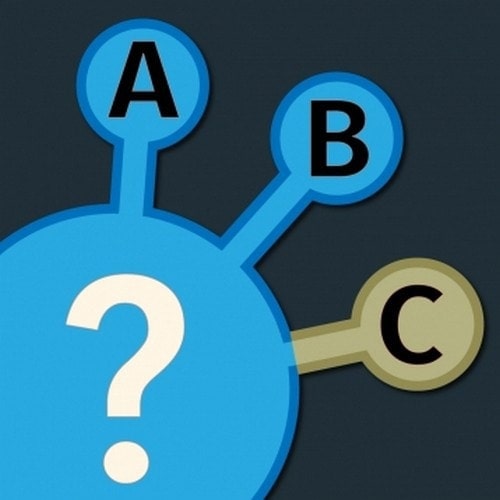A common confusion that we get when conducting a market research survey is the market research questions that we should ask from the sample population. While preparing the market research questionnaire, the type of questions you prepare is very important. These questions can be the difference between precise answers or deep insight into the customer’s mind.
If you were to launch a new automobile in the market, can you do a market survey with just 2-3 questions? You probably cannot. You would like to ask market research questions which answer what kind of cars the customers want, what speed they want, how many people are in their family who want to travel through car so on and so forth.
Thus, when you survey the general population, you will find out that most of them have different opinions on different subjects. As a result, these potentials can be divided into various groups based on their preference. This is the objective of asking market research questions – to get answers which divide the population into different segments and to find out which type of product each segment prefers.
So what are the 11 type of Market research questions? Read on
First, we need to divide the market research questions into 2 broad types
Table of Contents
A) Close-Ended Questions
Close-ended questions are questions which have a simple answer. Are you reading this article with your eyes open? Yes, you are. That’s a close-ended question. There is a precise and short answer which answers the question.
It is not necessary that close-ended market research questions be only of the YES or NO type. There are 7 different types of Close-ended market research questions each of which are discussed below and can help you in your questionnaire.
1) Dichotomous
It is a simple YES and NO type of questions which gives a precise answer. These kind of questions should be asked in the start when you are analyzing the respondent. Companies use this kind of questions to find out more about the customer and his mindset.
Example – Do you do your own shopping? Do you like to watch television? Do you like to listen to songs? Such questions can have either a yes answer or a no answer.
2) Multiple Choice
In this type of market research questions, the options given are multiple choice and customer is asked to choose one of the choices given. Alternatively, the customer can also choose 2 or 3 choices too. The objective here is to understand the different requirements a customer might have regarding the product.
Example –Which type of soap do you use the most? Dove, Pears, Olay, Lux, Cetaphil, Others. In this type of question, the customer can answer with a single choice or a multi-choice. Nonetheless, by giving this multiple choice questions, you get an idea of what the customer is preferring In the current market.
3) Likert Scale
Likert scale is used when you want to give a scale of measure to the customer. How much does he like a brand or a product? This is also a close-ended question because there is a definite scale of measure which is given to the customer.
Example – How much do you like Sunsilk shampoo?
- I don’t like it at all
- I wash with it when available but not important
- I like it and use It frequently
- I use it regularly
- I ONLY use Sunsilk shampoo
4) Semantic Difference
Two different opposite words are used to understand which side the customer stands on. These two words can be anything and are better explained with examples.
Example – In the below scale, the respondent can select the point that represents his opinion.
How did you rate the latest star wars?
Excellent ________________ Pathetic
Good storyline __________________ Worst storyline
Good acting ___________________ Worst acting.
5) Importance scale
These type of market research questions tell a lot about the customer. It shows what is important for the customer and therefore gives the brand a good insight in the mind of the consumers. A large population can show what is important for them which makes a huge difference to the brand and gives a direction to the brand as well. Note – this is a question about the customer and not about the brand.
Example – How important is leg space in airlines for your comfort?
- Extremely important
- Very important
- Somewhat important
- Not very important
- Not at all important
6) Rating scale
This question tells brands how the customer would rate the brand on its performance. There are many factors which play a role here. A customer might rate the brand low because he has had the better experience with another brand or another customer might rate the brand high because his previous experience with another brand was bad.
It is one of the most widely adopted close ended market research questions in the market currently. E-commerce companies like Amazon, Blogs, Restaurants and many such online markets use the Rating scale to judge the customers rating for their brands. Even search engines use these ratings to rank companies.
Example – How would you rate the store experience of Zara?
- Beyond Compare
- Very good
- Good enough
- Could be better
- Bad
7) Intention to buy
This question is again a scale of measure of customers likely to buy a product. It gives an insight into the population as a whole. If a big population shows that it is highly unlikely to buy your product, then there is something very wrong in the market or in your product. However, if a large population shows that it is going to buy the product, then it gives you a signal to improve after-sales service so that you can retain the existing large market and do not lose it to other players in the market.
Example – How likely are you to visit this restaurant again? (Or how likely are you to buy this product in the future)
- Will definitely visit/buy
- Will probably visit/buy
- I am unsure of my future visit/buying
- I will probably not visit/buy
- I will never visit/buy
B) Open-Ended Questions
As the name suggests, open-ended questions are questions where customers have their freedom to express their opinions about a product or a service. It is very difficult to ask open-ended questions and to analyze the answers of a large population. These type of questions are used in conjunction with close-ended questions. Market research cannot be done ONLY with open-ended questions.
This is why when asking an open-ended question, the sample population is generally smaller. Nonetheless, Open-ended questions tend to give more insight in the customers’ mindset and what is at the top of the mind of the customer. They also tend to give new ideas to the companies which ask such questions.
There are 6 types of Open-Ended Market Research Questions
1) Completely Unstructured
This type of open-ended question is literally a rambling by the customer. It is not a yes or not type of question and neither is a scale of measure. It uses the experience of the customer and gives an insight into the opinions and values of the customer. It is very useful for behavioural studies.
Example –What do you think about the products of HUL?
On the above questions, the customer can answer about the products which he buys which belong to HUL company. He can tell why he liked some products and not others. He can also share a comparison between products for P&G or HUL and which one he likes better. The question is open-ended and so is the answer and the customer can comment whatever he likes.
2) Word Association
This type of open-ended question is asked when the customer is not given an option to choose from. In these questions, a brand can get the answer of which brand is in the top of the mind positioning for the customer and can get a good market analysis from the same.
Example – What comes to mind when I use these words?
Toothpaste – _____?
Shampoo- _____?
Soap – ______?
3) Sentence completion
Again one of the types of open-ended market research questions, wherein a half-finished sentence is given to a customer and he has to finish the complete sentence. The advantage here is that the answer or the choices are not given to the customer so he has to form his own choices or write his own opinion – which gives us an insight into the mind of the customer.
Example
While buying a car, I prefer the one with ____________________
While buying a laptop, the most important feature for me is _____________
While buying a Smartphone, my ideal screen size is ____________
There are two other forms of Open-ended questions which deal with using pictures to understand the customer mindset but they are mostly used in focus groups and not for the open market.
When preparing the market research questionnaire, it is important that you keep the questions less and more impactful. This is done so that the customer does not get bored and does not ignore questions and hence – choosing the right market research questions from the above type is important.
Ultimately, you should know the objective of market research before deciding the type of research questions that you want to ask.
Liked this post? Check out the complete series on Market research

